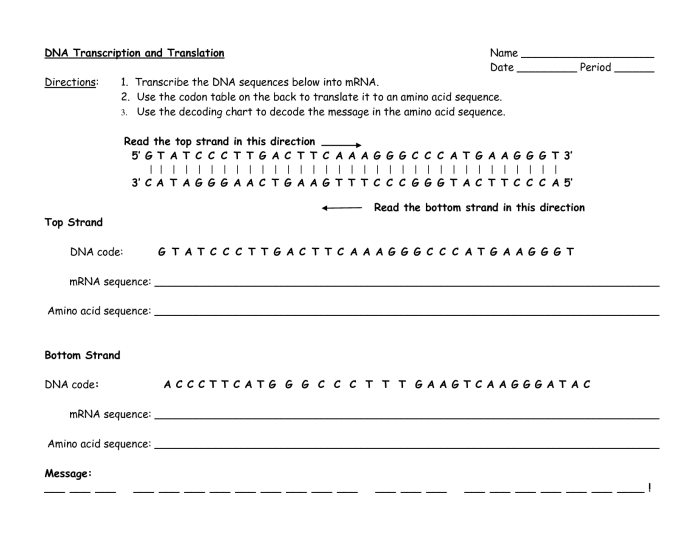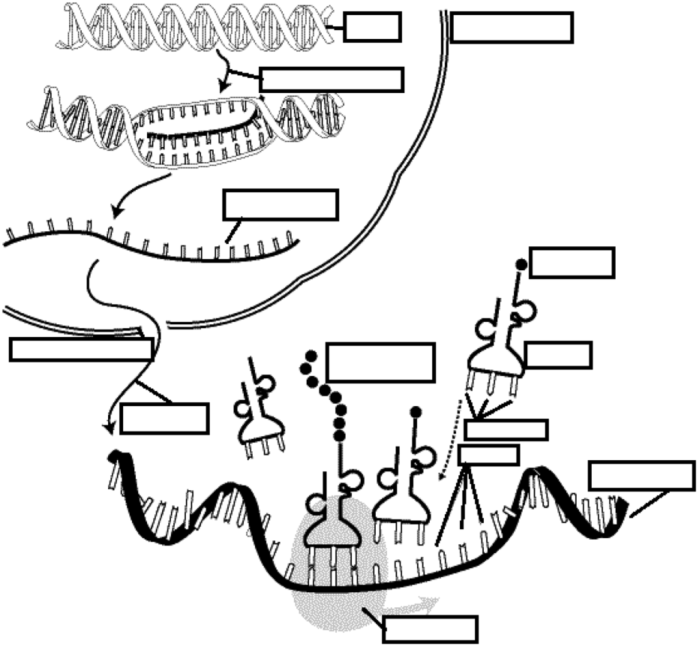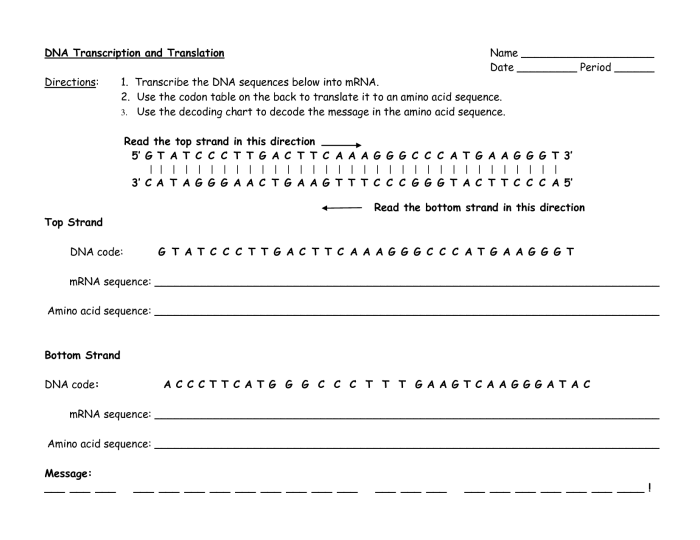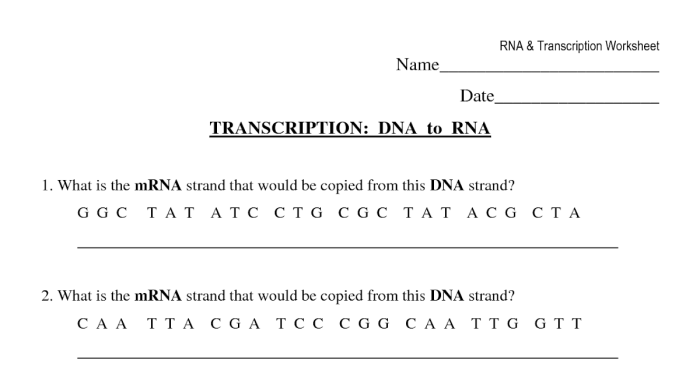Replication transcription translation leveled practice answer key is an essential resource for students to assess their understanding of the fundamental processes of molecular biology. This comprehensive guide provides clear explanations and detailed solutions to practice questions, enabling learners to master these complex concepts.
Replication, transcription, and translation are fundamental processes in molecular biology that ensure the accurate transmission of genetic information. Replication involves the duplication of DNA, transcription converts DNA into RNA, and translation converts RNA into proteins. Understanding these processes is crucial for comprehending the mechanisms of gene expression and cellular function.
Replication, Transcription, and Translation Processes

Replication, transcription, and translation are fundamental processes that ensure the proper functioning and continuity of life. These processes are essential for the accurate transmission of genetic information from one generation of cells to the next. Replicationis the process by which DNA makes a copy of itself.
It occurs during cell division and ensures that each daughter cell receives an identical copy of the genetic material. The key molecular components involved in replication are DNA polymerase, helicase, and ligase. Transcriptionis the process by which RNA is synthesized using DNA as a template.
It occurs in the nucleus and involves the enzyme RNA polymerase. Transcription produces messenger RNA (mRNA), which carries the genetic information from the nucleus to the cytoplasm. Translationis the process by which proteins are synthesized using mRNA as a template.
It occurs in the cytoplasm and involves the ribosome and transfer RNA (tRNA). Translation produces a polypeptide chain, which folds into a specific protein.
Replication, Transcription, and Translation Leveled Practice
Basic Level* Define replication, transcription, and translation.
Identify the molecular components involved in each process.
Intermediate Level* Describe the steps involved in each process.
Explain the differences between replication, transcription, and translation.
Advanced Level* Discuss the importance of replication, transcription, and translation in cellular biology.
Analyze how errors in these processes can lead to disease.
Answer Key for Replication, Transcription, and Translation Practice, Replication transcription translation leveled practice answer key
| Question | Level | Answer | Explanation |
|---|---|---|---|
| Define replication. | Basic | Replication is the process by which DNA makes a copy of itself. | Replication ensures that each daughter cell receives an identical copy of the genetic material. |
| Identify the molecular components involved in transcription. | Basic | RNA polymerase | RNA polymerase is the enzyme that synthesizes RNA using DNA as a template. |
| Describe the steps involved in translation. | Intermediate | 1. Ribosome binds to mRNA.
|
Translation produces a polypeptide chain, which folds into a specific protein. |
| Explain the differences between replication, transcription, and translation. | Intermediate | Replication copies DNA, transcription produces mRNA, and translation produces proteins. | Replication occurs in the nucleus, transcription occurs in the nucleus, and translation occurs in the cytoplasm. |
| Discuss the importance of replication, transcription, and translation in cellular biology. | Advanced | These processes are essential for the accurate transmission of genetic information. | Errors in these processes can lead to disease. |
FAQ Overview: Replication Transcription Translation Leveled Practice Answer Key
What is the difference between replication, transcription, and translation?
Replication is the process of duplicating DNA, transcription is the process of converting DNA into RNA, and translation is the process of converting RNA into proteins.
What are the molecular components involved in replication?
The molecular components involved in replication include DNA polymerase, RNA primers, and nucleotides.
What are the steps involved in transcription?
The steps involved in transcription include initiation, elongation, and termination.


